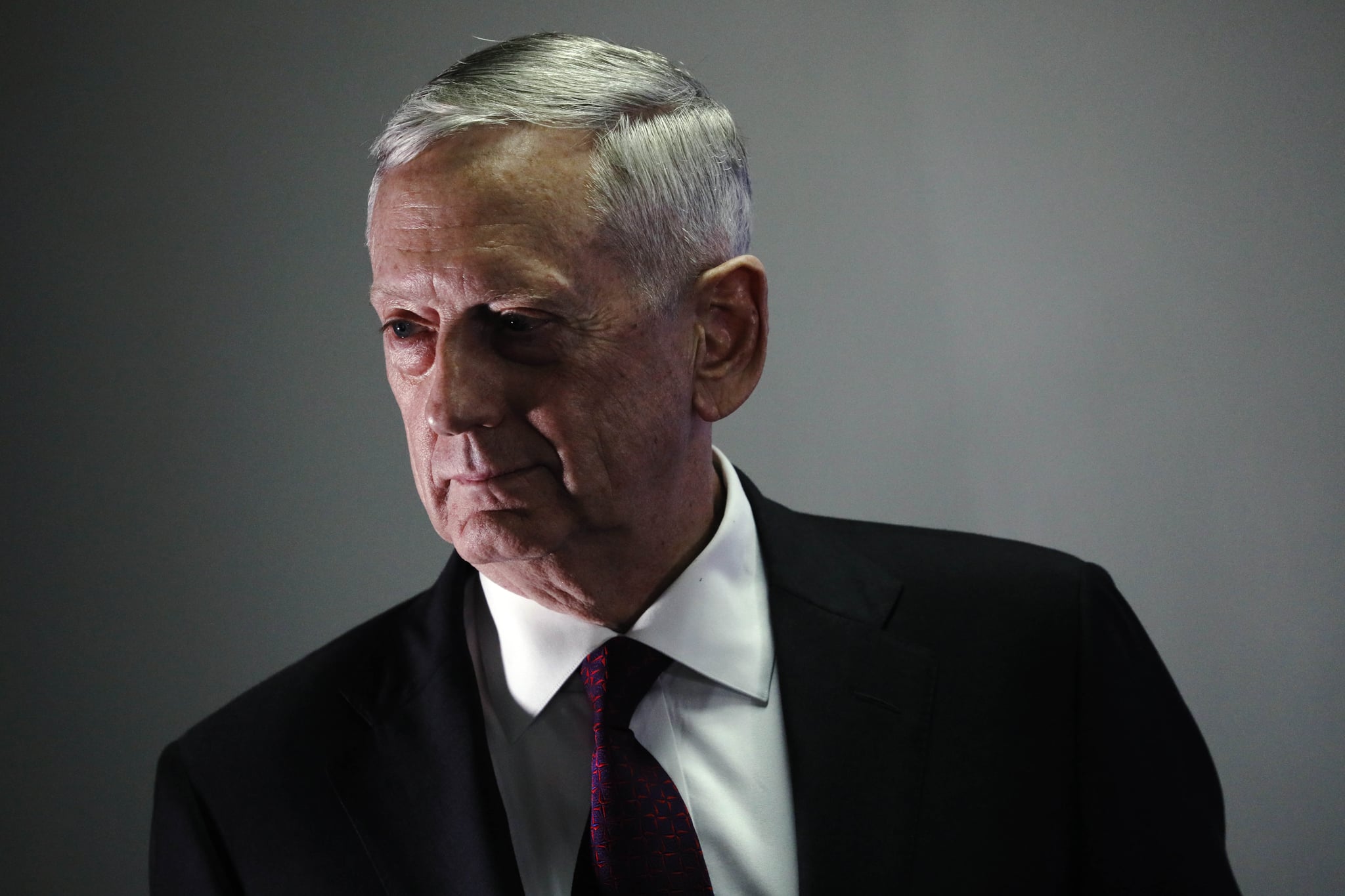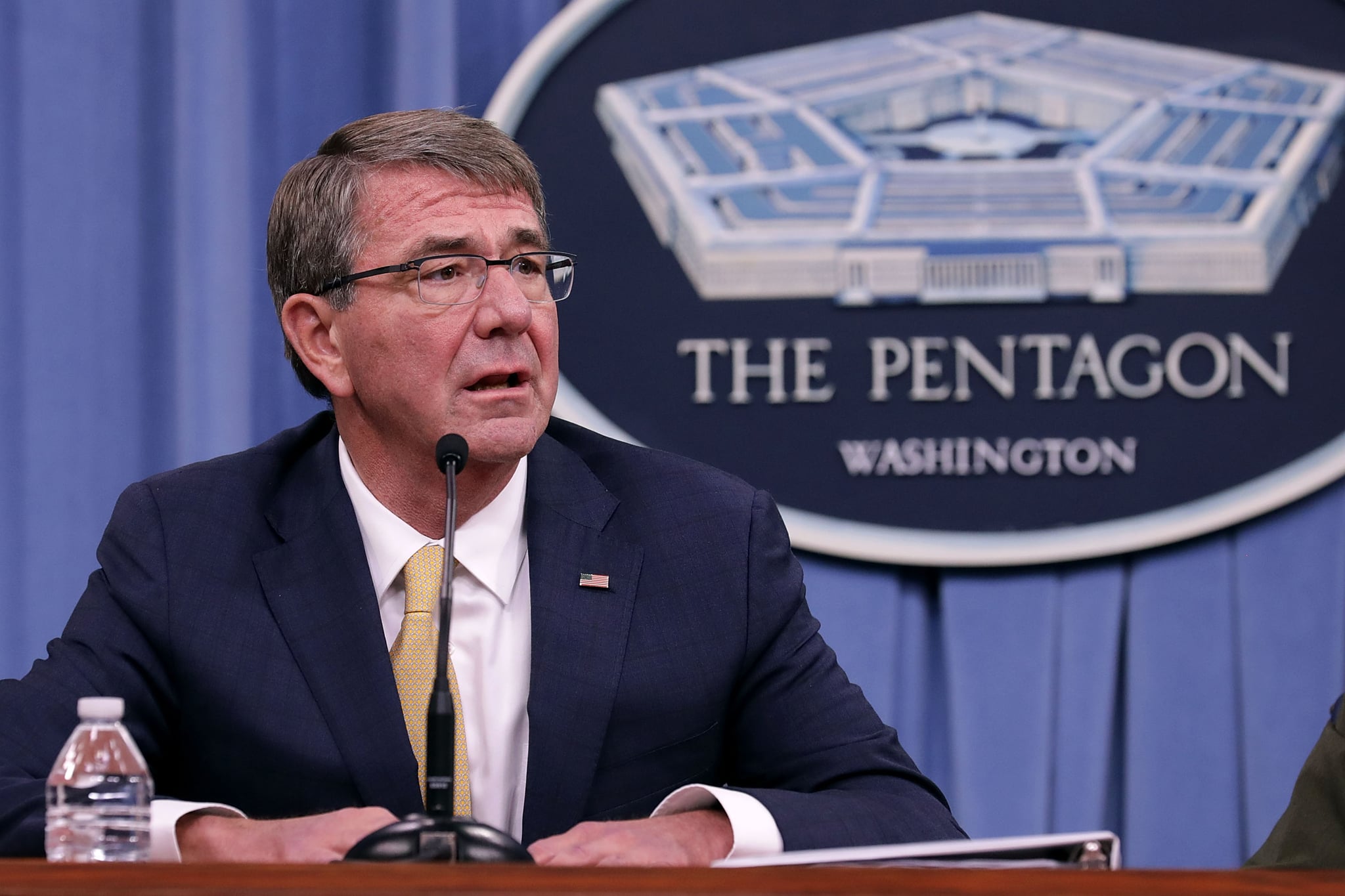
On Tuesday, Secretary of Defense Jim Mattis officially responded [1] to President Donald Trump [2]'s memo about the transgender military ban [3]. The current policy, which allows transgender individuals to openly serve, will remain intact pending the results of an important study that Mattis ordered [4] in June, just hours before the Pentagon was set to allow transgender recruits to join the military.
The study would determine the effect of recruiting new transgender individuals and whether it would have a negative impact on the Pentagon's ability to fight and win wars. In an official statement, Mattis explained how the study would impact his decisions going forward. "Once the panel reports its recommendations and following my consultation with the secretary of Homeland Security," he said, "I will provide my advice to the president concerning implementation of his policy direction. In the interim, current policy with respect to currently serving members will remain in place."
This study is not new to the military. In fact, a similar study was conducted before the Pentagon lifted the original ban on transgender service members [5] under the Obama administration. Before doing so, Secretary of Defense Ash Carter conducted a study very much like Mattis's. The difference was, instead of determining the impact recruited troops would have on military readiness, Carter wanted to study the impact current active transgender soldiers would have on the battlefield.

In his official speech announcing the lift of the ban [6], Carter shared his results. According to RAND [7], the official research organization for the United States Armed Forced, there would be "minimal readiness impacts from allowing transgender service members to serve openly." In addition to a low impact on duty and deployability, RAND also determined that the medical costs to treat transgender individuals would be "an exceedingly small proportion" of overall expenditures.
As Carter noted in his speech, it's a very large monetary investment to train new soldiers. That's one reason it benefits the military to keep transgender individuals who have gone through full military training and are already serving in the US Armed Forces. And that's why Mattis ordered his study: to determine if new transgender recruits are worth that investment.
In the end, the decision made by Mattis will bide the Pentagon's time, but it's not a direct attack or figurative middle finger to President Trump. Mattis simply will not adopt a policy that detracts from military readiness, and in terms of hard facts and research, the jury is still out. As it currently stands, the lawsuits filed by transgender service members [8] and the ACLU's separate decision to sue [9] are still active. Mattis may just be stalling the inevitable.